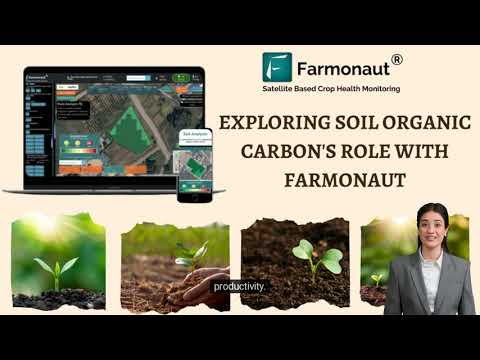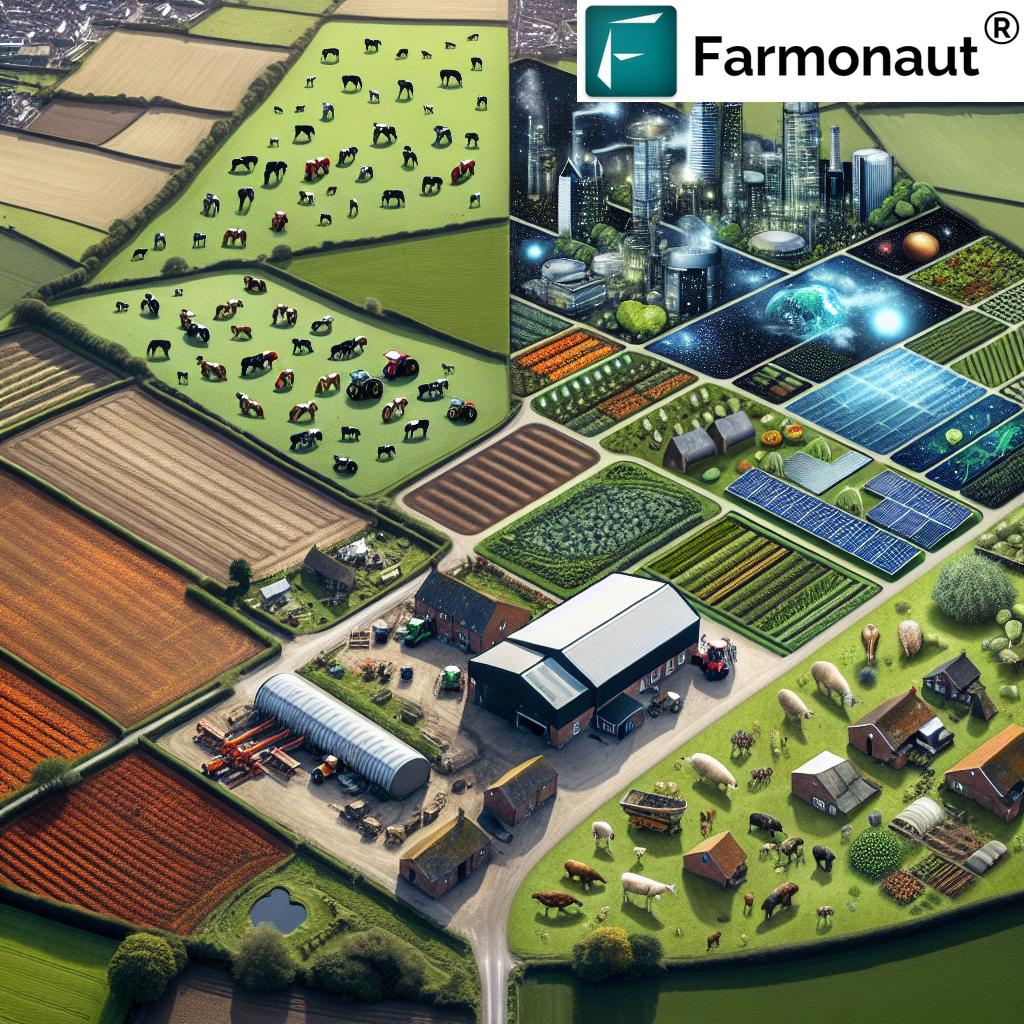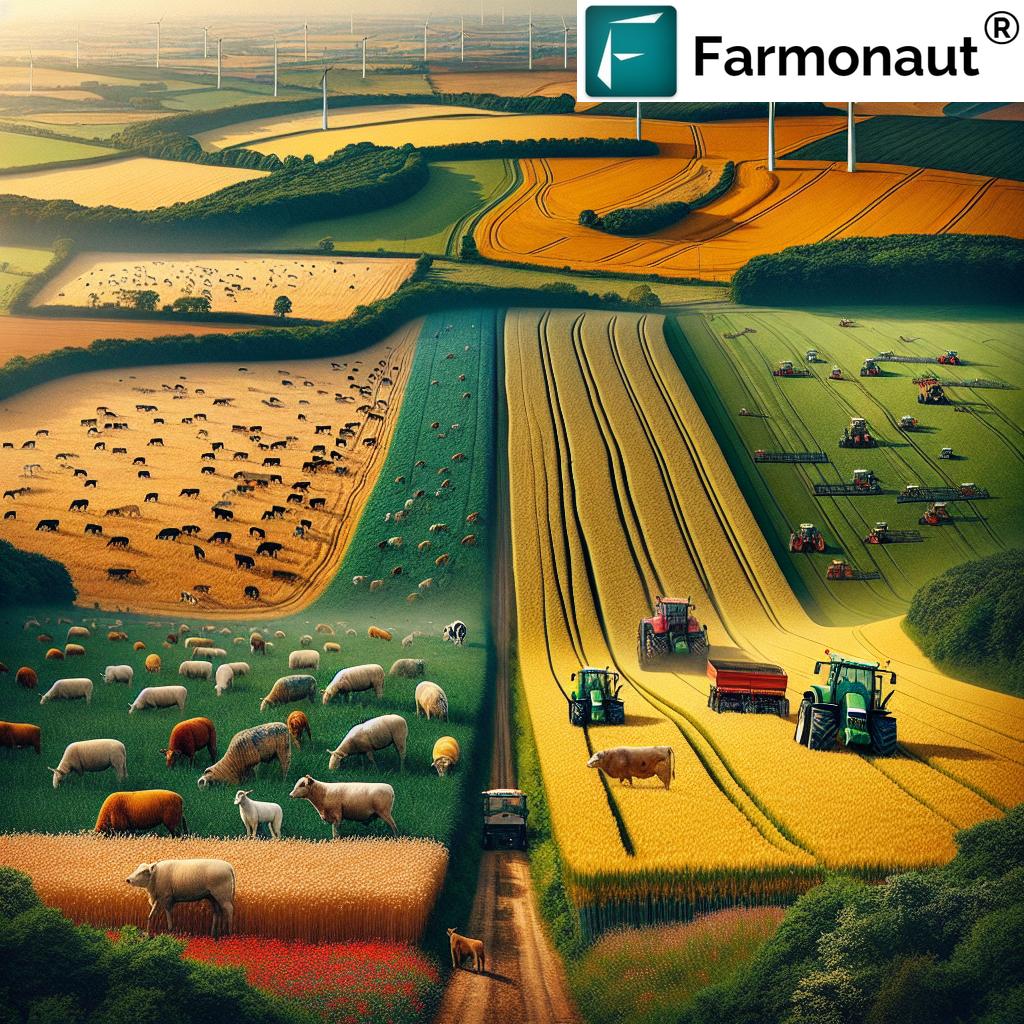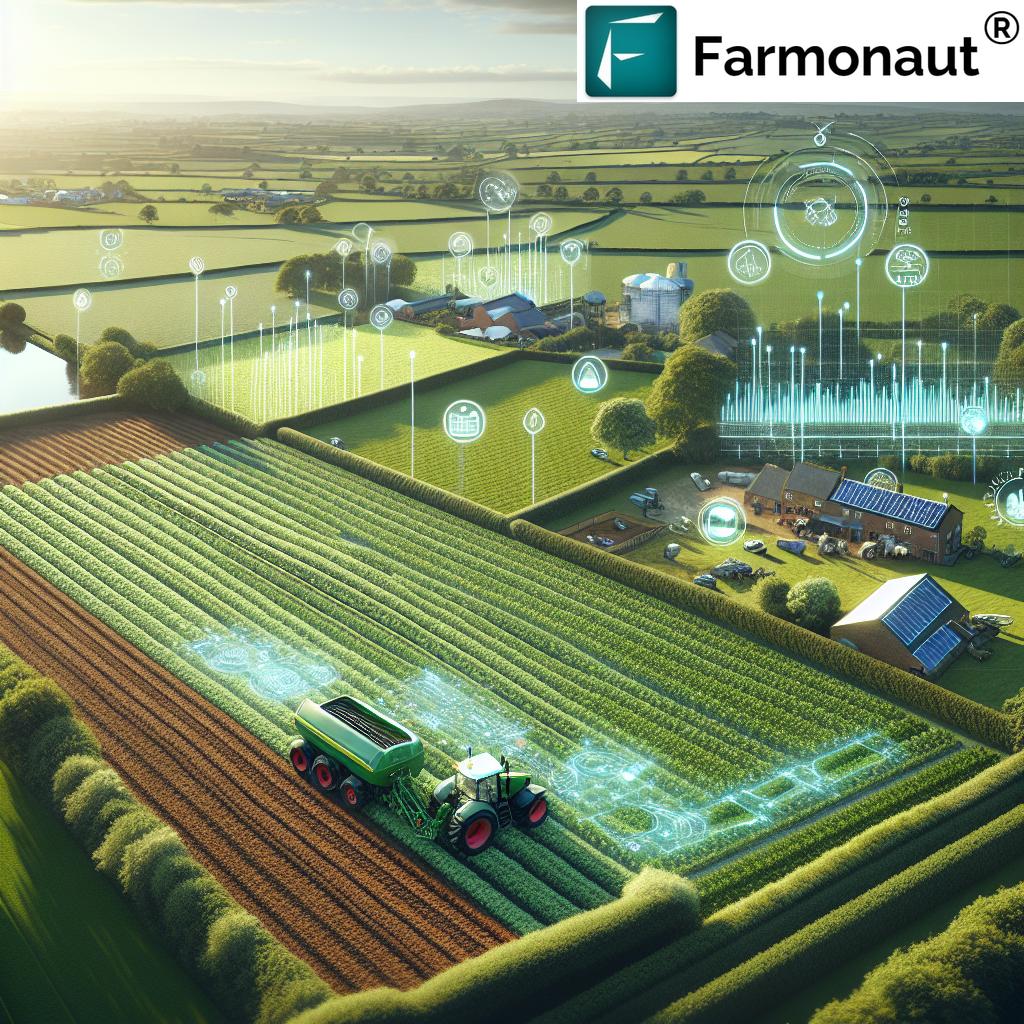Revolutionizing Scotland’s Farms: How Regenerative Techniques and Natural Capital Boost Sustainable Agriculture
“Scotland’s regenerative farming practices have increased soil carbon storage by up to 30% on participating farms.”
In recent years, we’ve witnessed a remarkable transformation in Scotland’s agricultural landscape. As we delve into the world of sustainable farming, we’ll explore how regenerative techniques and natural capital development are reshaping the future of agriculture in this beautiful country. From the rolling hills of the Highlands to the fertile lowlands, Scottish farmers are embracing innovative practices that not only enhance biodiversity and improve soil health but also contribute significantly to carbon storage.
In this comprehensive blog post, we’ll uncover the secrets behind sustainable farming practices that are revolutionizing small and medium-sized farms across Scotland. We’ll examine how these methods are not only environmentally friendly but also economically viable, creating a win-win situation for both farmers and nature.
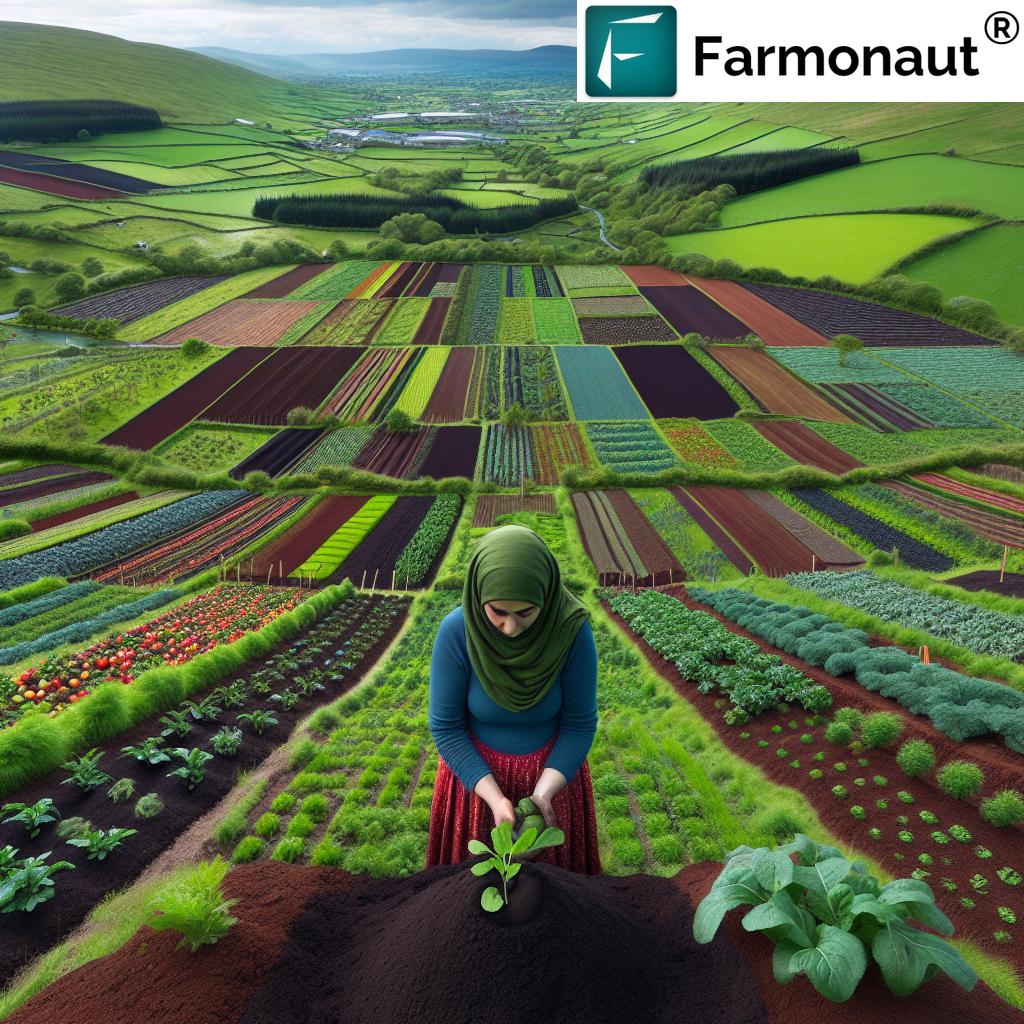
The Rise of Regenerative Farming Techniques in Scotland
Regenerative farming techniques are at the heart of Scotland’s agricultural revolution. These practices aim to restore and enhance the natural ecosystems within farming environments, creating a more sustainable and resilient agricultural system. Let’s explore some of the key techniques that are making a significant impact:
- Cover Cropping: This technique involves planting crops specifically to cover the soil rather than for harvest. Cover crops help prevent soil erosion, improve soil structure, and increase organic matter content.
- No-Till Farming: By minimizing soil disturbance, no-till farming helps maintain soil structure, reduce erosion, and preserve beneficial soil organisms.
- Agroforestry: The integration of trees and shrubs into crop and animal farming systems provides numerous benefits, including improved soil health, increased biodiversity, and enhanced carbon sequestration.
- Rotational Grazing: This method involves moving livestock between pastures to allow for grass recovery and prevent overgrazing, leading to improved soil health and increased carbon storage in grasslands.
These regenerative farming techniques are not only improving the health of Scotland’s farmlands but are also contributing significantly to the country’s efforts in combating climate change.
Natural Capital Development in Scottish Agriculture
Natural capital refers to the world’s stocks of natural assets, including soil, air, water, and all living things. In the context of agriculture, natural capital development involves enhancing and preserving these assets to create more sustainable and productive farming systems. In Scotland, this approach is gaining traction, with farmers recognizing the long-term benefits of investing in their land’s natural resources.
Key aspects of natural capital development in Scottish agriculture include:
- Soil Health Improvement: Farmers are focusing on building organic matter in their soils, which not only improves fertility but also enhances water retention and carbon storage.
- Biodiversity Enhancement: Creating habitats for wildlife, such as hedgerows and wildflower meadows, is becoming an integral part of farm management.
- Water Management: Implementing sustainable drainage systems and creating wetlands helps manage water resources more effectively while providing habitats for various species.
By investing in natural capital, Scottish farmers are not only improving their land’s productivity but also contributing to the overall health of the environment.
Sustainable Farming Practices: A Closer Look
Sustainable farming practices are at the core of Scotland’s agricultural transformation. These methods aim to meet society’s food needs in the present without compromising the ability of future generations to meet their own needs. Let’s examine some of the key sustainable farming practices being adopted across Scotland:
- Organic Farming: The adoption of organic farming practices is on the rise in Scotland. Organic farms avoid the use of synthetic pesticides and fertilizers, instead relying on natural pest control methods and organic fertilizers.
- Precision Agriculture: Utilizing technology to optimize resource use, precision agriculture allows farmers to apply inputs like water, fertilizers, and pesticides only where and when they are needed, reducing waste and environmental impact.
- Crop Rotation: By alternating different crops on the same land, farmers can break pest cycles, improve soil health, and reduce the need for synthetic inputs.
- Conservation Tillage: This practice involves reducing the intensity of tillage to maintain crop residues on the soil surface, which helps prevent erosion and improve soil structure.
These sustainable farming practices are not only environmentally friendly but also contribute to the long-term viability of Scotland’s agricultural sector.
“Over 15% of Scotland’s small and medium-sized farms have adopted agroforestry techniques, boosting biodiversity and crop yields.”
The Role of Technology in Sustainable Agriculture
Technology plays a crucial role in advancing sustainable agriculture in Scotland. Innovative solutions are helping farmers implement environmentally friendly practices more efficiently and effectively. One such solution is Farmonaut, a pioneering agricultural technology company that offers advanced, satellite-based farm management solutions.
Farmonaut’s platform provides valuable services such as:
- Real-time crop health monitoring
- AI-based advisory systems
- Blockchain-based traceability
- Resource management tools
These technologies enable farmers to make data-driven decisions, optimize resource use, and implement sustainable practices more effectively.
Explore Farmonaut’s innovative solutions:
Biodiversity Enhancement on Scottish Farms
Enhancing biodiversity is a crucial aspect of sustainable agriculture in Scotland. By creating diverse ecosystems on their farms, farmers are not only supporting wildlife but also improving the resilience and productivity of their agricultural systems. Some key strategies for biodiversity enhancement include:
- Hedgerow Planting: Hedgerows provide habitats for numerous species and act as corridors for wildlife movement.
- Creation of Wildflower Meadows: These areas support pollinators and other beneficial insects, which are crucial for crop pollination and natural pest control.
- Wetland Restoration: Restoring or creating wetlands on farms can provide habitats for various species while also helping with water management.
- Field Margin Management: Leaving uncultivated margins around fields provides habitats for wildlife and acts as a buffer zone for pollution control.
By implementing these biodiversity-enhancing measures, Scottish farmers are creating more balanced and productive agricultural ecosystems.

Carbon Storage in Scottish Agriculture
One of the most significant benefits of regenerative farming techniques is their potential for carbon storage. Scottish agriculture is playing a crucial role in the country’s efforts to combat climate change by sequestering carbon in soils and vegetation. Here’s how different practices contribute to carbon storage:
- Improved Soil Management: Practices like no-till farming and cover cropping help increase soil organic matter, which is a significant carbon sink.
- Agroforestry: The integration of trees on farms provides long-term carbon storage both above and below ground.
- Grassland Management: Proper management of pastures and grasslands can significantly increase their carbon sequestration potential.
- Peatland Restoration: Many Scottish farms include areas of peatland, which, when restored, can become powerful carbon sinks.
By adopting these practices, Scottish farmers are not only improving their soil health but also contributing to national and global climate change mitigation efforts.
Water Management for Small Farms in Scotland
Effective water management is crucial for sustainable agriculture, particularly for small farms in Scotland. With changing climate patterns affecting rainfall distribution, Scottish farmers are adopting innovative water management techniques to ensure the resilience of their operations. Some key strategies include:
- Rainwater Harvesting: Collecting and storing rainwater for use during dry periods reduces reliance on mains water and helps manage water resources more sustainably.
- Precision Irrigation: Using technology to apply water precisely where and when it’s needed helps conserve water and improve crop yields.
- Sustainable Drainage Systems: These systems help manage water flow, reduce flooding risks, and improve water quality by filtering out pollutants.
- Wetland Creation: Creating or restoring wetlands on farms can help with water storage, flood mitigation, and biodiversity enhancement.
By implementing these water management techniques, Scottish farmers are not only improving their water use efficiency but also enhancing the overall sustainability of their operations.
Organic Farming Certification in Scotland
Organic farming is gaining momentum in Scotland, with more farmers recognizing its benefits for both the environment and consumer health. The process of obtaining organic certification involves several steps:
- Conversion Period: Farms must undergo a conversion period, typically two years for crops and three years for livestock, during which they follow organic practices but cannot sell products as organic.
- Standards Compliance: Farmers must adhere to strict organic standards set by certification bodies approved by the UK government.
- Record Keeping: Detailed records of all farm activities, inputs, and outputs must be maintained.
- Regular Inspections: Certified organic farms undergo annual inspections to ensure ongoing compliance with organic standards.
- Certification: Upon successful completion of the conversion period and meeting all requirements, farms receive organic certification.
Organic certification not only provides assurance to consumers but also opens up new market opportunities for Scottish farmers.
Agroforestry Benefits in the Scottish Context
Agroforestry, the integration of trees and shrubs into agricultural systems, is gaining traction in Scotland due to its numerous benefits. This practice offers a unique approach to sustainable land management, particularly suitable for Scotland’s diverse landscape. The benefits of agroforestry in Scotland include:
- Improved Soil Health: Trees help prevent soil erosion, increase organic matter content, and improve soil structure.
- Enhanced Biodiversity: Agroforestry systems provide habitats for a wide range of species, increasing farm biodiversity.
- Climate Resilience: Trees provide shelter for crops and livestock, reducing the impact of extreme weather events.
- Diversified Income Streams: Farmers can benefit from multiple products, including timber, fruits, and nuts, in addition to traditional crops or livestock.
- Carbon Sequestration: Trees in agroforestry systems significantly contribute to carbon storage, both above and below ground.
By adopting agroforestry practices, Scottish farmers are creating more resilient and productive agricultural landscapes.
Soil Health Improvement Strategies
Improving soil health is fundamental to sustainable agriculture in Scotland. Healthy soils are more productive, resilient to climate change, and better at storing carbon. Here are some key strategies Scottish farmers are employing to enhance soil health:
- Reduced Tillage: Minimizing soil disturbance helps maintain soil structure and protect beneficial soil organisms.
- Crop Rotation: Alternating crops helps break pest cycles and balances nutrient use in the soil.
- Cover Cropping: Planting cover crops between main crop seasons helps prevent erosion, add organic matter, and improve soil structure.
- Organic Matter Addition: Incorporating compost, manure, and other organic materials helps improve soil fertility and structure.
- Minimizing Chemical Inputs: Reducing the use of synthetic fertilizers and pesticides helps promote healthy soil microbial communities.
By focusing on soil health, Scottish farmers are laying the foundation for long-term agricultural sustainability and productivity.
Sustainable Food Production Methods in Scotland
Scotland is at the forefront of implementing sustainable food production methods that balance productivity with environmental stewardship. These methods aim to produce high-quality food while minimizing environmental impact and ensuring long-term sustainability. Key approaches include:
- Integrated Pest Management (IPM): This approach combines biological, cultural, and chemical methods to manage pests effectively while minimizing environmental impact.
- Precision Agriculture: Using technology to optimize resource use, precision agriculture allows for more efficient and targeted farming practices.
- Vertical Farming: In urban areas, vertical farming is emerging as a space-efficient method of producing fresh, local produce.
- Aquaponics: This system combines fish farming with hydroponic plant cultivation, creating a closed-loop system that is highly efficient in resource use.
- Low-Input Farming: Reducing the use of external inputs like synthetic fertilizers and pesticides helps minimize environmental impact while often improving product quality.
These sustainable food production methods are helping Scotland move towards a more resilient and environmentally friendly agricultural sector.
For developers interested in integrating agricultural data into their applications, Farmonaut offers comprehensive API solutions:
Comparative Analysis of Regenerative Farming Techniques in Scotland
| Regenerative Technique | Primary Benefits | Environmental Impact | Yield Improvement (estimated %) | Carbon Sequestration Potential (estimated tons CO2/hectare/year) | Implementation Complexity | Suitable Farm Types |
|---|---|---|---|---|---|---|
| Cover Cropping | Soil protection, nutrient cycling | Reduced erosion, improved soil health | 5-10% | 0.5-1.5 | Low | Arable, Mixed |
| No-Till Farming | Soil structure preservation, reduced labor | Increased soil biodiversity, reduced emissions | 3-8% | 0.3-1.0 | Medium | Arable |
| Agroforestry | Diversified income, improved microclimate | Enhanced biodiversity, carbon storage | 10-20% | 2.0-5.0 | High | Mixed, Livestock |
| Rotational Grazing | Improved pasture quality, animal health | Enhanced soil health, reduced overgrazing | 15-25% | 0.5-2.0 | Medium | Livestock |
| Organic Farming | Premium prices, reduced chemical inputs | Improved soil and water quality | -5% to +5% | 0.2-0.8 | High | All Types |
| Precision Agriculture | Optimized resource use, reduced waste | Reduced environmental footprint | 10-15% | 0.1-0.5 | High | Arable, Mixed |
Government Policies and Private Sector Initiatives
The transformation of Scotland’s agricultural sector is being supported by a combination of government policies and private sector initiatives. These efforts are crucial in driving the adoption of sustainable farming practices and supporting farmers through the transition. Key aspects include:
- Government Subsidies: The Scottish government offers various subsidies and grants to support farmers in adopting sustainable practices.
- Environmental Stewardship Programs: These programs provide financial incentives for farmers who implement environmentally friendly practices on their land.
- Research and Development Funding: Significant investment is being made in agricultural research to develop new sustainable farming technologies and practices.
- Private Sector Partnerships: Companies like Farmonaut are partnering with farmers to provide innovative solutions for sustainable agriculture.
- Carbon Credit Schemes: Emerging carbon credit markets are providing additional income opportunities for farmers who sequester carbon through sustainable practices.
These policies and initiatives are creating a supportive environment for the continued growth of sustainable agriculture in Scotland.
The Future of Sustainable Farming in Scotland
As we look to the future, the path for sustainable farming in Scotland is bright and full of potential. The combination of innovative farming techniques, supportive policies, and technological advancements is paving the way for a more resilient and environmentally friendly agricultural sector. Key trends shaping the future include:
- Increased Adoption of Precision Agriculture: As technology becomes more accessible, more farmers are expected to embrace precision farming techniques.
- Growth in Organic and Regenerative Farming: Consumer demand for sustainably produced food is likely to drive further growth in organic and regenerative farming practices.
- Climate-Smart Agriculture: With climate change impacts becoming more evident, farmers will increasingly adopt practices that enhance resilience and contribute to climate mitigation.
- Diversification of Farm Incomes: Farmers are likely to explore more diverse income streams, including agritourism and ecosystem services.
- Continued Technological Innovation: Companies like Farmonaut will continue to develop new technologies to support sustainable farming practices.
The future of farming in Scotland is one where productivity and environmental stewardship go hand in hand, creating a sustainable and thriving agricultural sector.
Conclusion
The revolution in Scotland’s farming sector through regenerative techniques and natural capital development is a testament to the country’s commitment to sustainable agriculture. By embracing innovative practices that enhance biodiversity, improve soil health, and boost carbon storage, Scottish farmers are not only ensuring the long-term viability of their operations but also contributing significantly to global efforts in combating climate change.
The journey towards sustainable agriculture is ongoing, and with the support of government policies, private sector initiatives, and technological innovations from companies like Farmonaut, Scotland is well-positioned to lead the way in creating a more resilient and environmentally friendly agricultural sector.
As we move forward, the continued adoption of regenerative farming techniques and investment in natural capital will be crucial in shaping a sustainable future for Scotland’s farms. This transformation not only benefits the environment but also ensures the long-term prosperity of rural communities and the security of the nation’s food supply.
The revolution in Scotland’s farms is more than just a change in farming practices; it’s a holistic approach to land management that balances productivity with environmental stewardship, setting a powerful example for sustainable agriculture worldwide.
FAQ Section
Q: What are regenerative farming techniques?
A: Regenerative farming techniques are agricultural practices that focus on improving soil health, enhancing biodiversity, and increasing carbon sequestration. These include methods such as no-till farming, cover cropping, rotational grazing, and agroforestry.
Q: How does natural capital development benefit Scottish agriculture?
A: Natural capital development in agriculture involves enhancing and preserving natural assets like soil, water, and biodiversity. This approach leads to more resilient farm ecosystems, improved productivity, and long-term sustainability of agricultural operations.
Q: What role does technology play in sustainable farming in Scotland?
A: Technology plays a crucial role in sustainable farming by enabling precision agriculture, providing real-time crop monitoring, and facilitating data-driven decision-making. Companies like Farmonaut offer satellite-based solutions that help farmers optimize resource use and implement sustainable practices more effectively.
Q: How are Scottish farmers contributing to carbon storage?
A: Scottish farmers are contributing to carbon storage through various practices, including improving soil health, implementing agroforestry systems, managing grasslands effectively, and restoring peatlands. These practices help sequester carbon in soils and vegetation, mitigating climate change impacts.
Q: What are the benefits of organic farming certification in Scotland?
A: Organic farming certification in Scotland provides assurance to consumers about the production methods used, opens up new market opportunities for farmers, and often allows for premium pricing of products. It also encourages farming practices that are beneficial for the environment and biodiversity.


